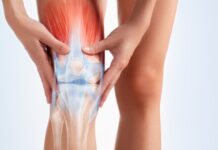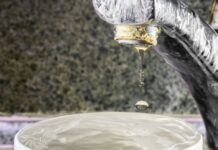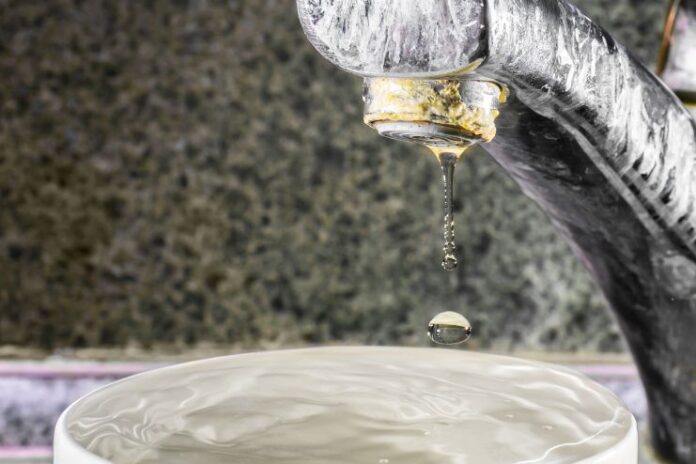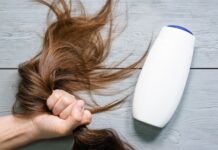If your hair is straw-like, no matter the amount of conditioner you apply, hard water may be the sneakiest culprit. Most people blame their shampoo, heated styling devices, or genes for boring hair, but the actual problem may be in your showerhead. Hard water containing high amounts of minerals quietly harms your hair health. High concentration of minerals such as calcium and magnesium, is the sneaky sabotager of great hair.
The minerals build up slowly, making hair dull, brittle, and infuriatingly resistant to your normal hair care efforts. Luckily, hard water hair damage is not irreversible, and with the proper tools and techniques, you can undo the damage and restore your hair’s natural luster.
Read More: Batana Oil Benefits – The Secret to Stronger Hair and Glowing Skin
What Is Hard Water and How Does It Affect Hair?
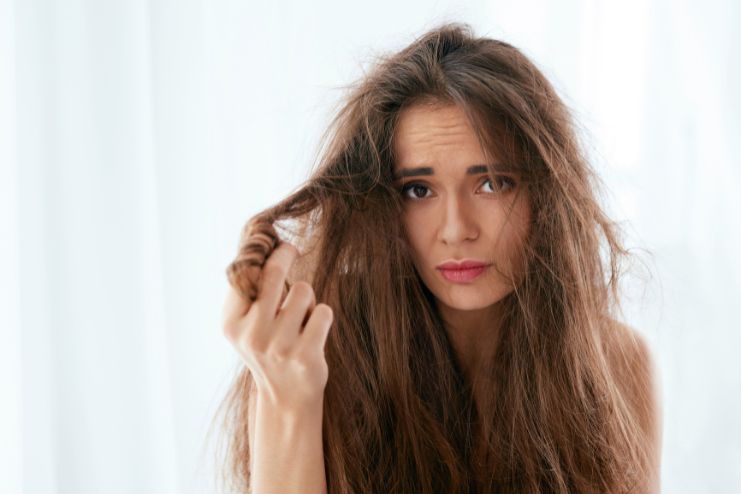
As mentioned earlier, hard water contains large amounts of dissolved minerals, mainly calcium and magnesium. Although the minerals are safe to consume, they are a major problem in personal care.
If you shampoo your hair with hard water, the minerals stick to your hair shaft and scalp, creating an intractable residue. The film not only captures dirt and oils but also:
- Prevents moisture from entering the hair
- Blocks the absorption of hair-nourishing products
- Disrupts natural oil distribution along the hair strands
- Changes hair texture and color with long use
The result? A film of mineral deposits on hair that causes even recently shampooed locks to feel dirty, brittle, and unruly.
Common Signs of Hard Water Damage on Hair
If you aren’t sure whether hard water is the problem. Look out for these telltale signs:
1. Hair Feels Dry, Brittle, or “Crunchy”
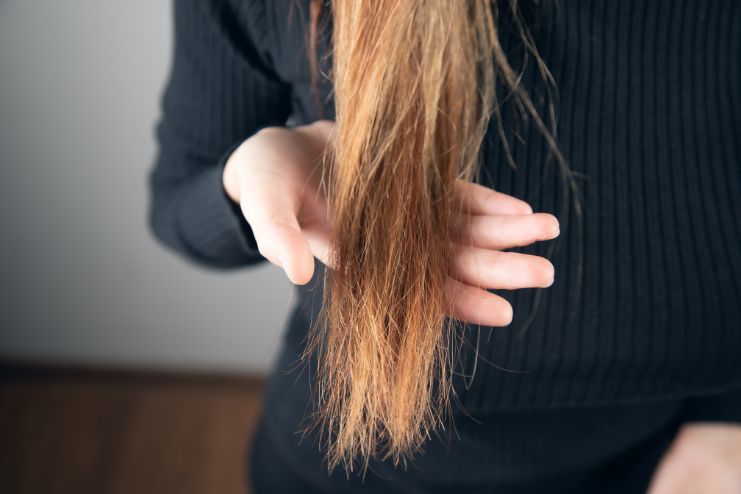
Hard water robs the hair of its natural oils, leaving it dry, rigid, and brittle. You might notice:
- Hair that is rough or straw-like, particularly after drying naturally.
- Split ends or hair breakage, even with frequent conditioning.
- It lacks softness, regardless of the conditioner or serum you apply.
2. Dull or Faded Color
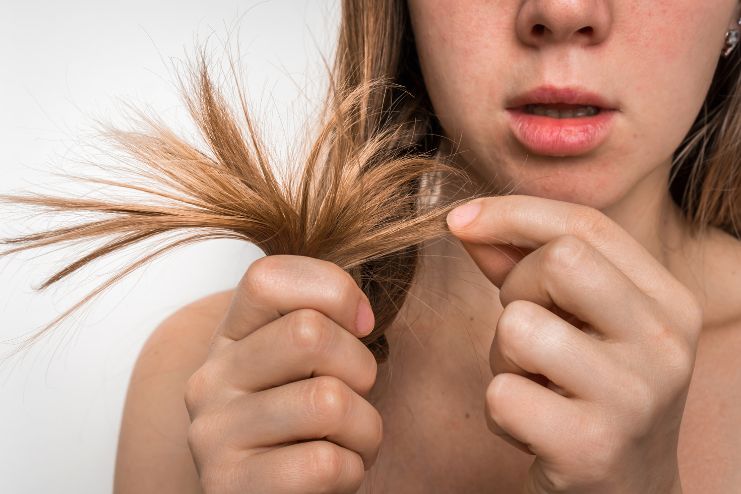
Mineral deposits can lighten hair dye or bleach prematurely. Hard water may:
- Make bright hair colors appear dull or brassy.
- Reduce the luster of natural or chemically treated hair.
- Need more salon visits to maintain color.
3. Increased Tangles, Frizz, and Split Ends
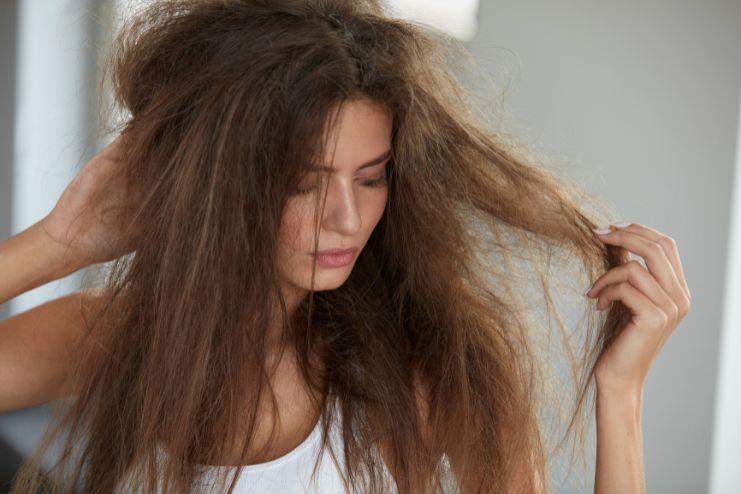
Mineral buildup lifts the cuticle of the hair shaft, causing friction and:
- Excessive tangling, even with detangling sprays
- Persistent frizz, particularly in humid weather
- Fragile ends that split easily
4. Persistent Product Buildup
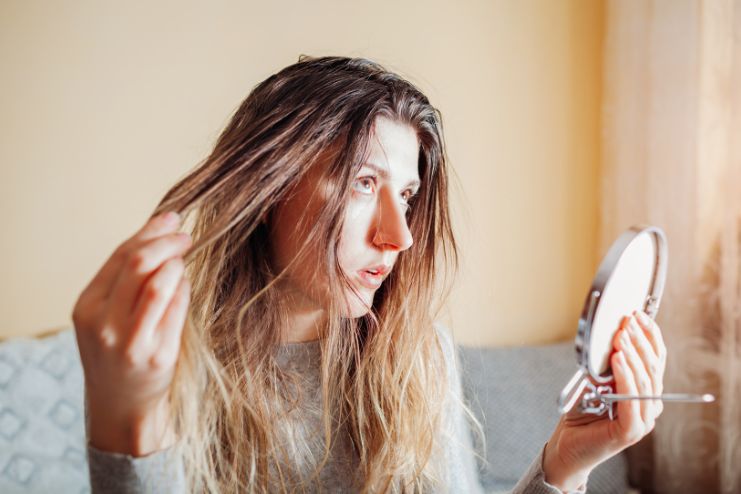
If your hair doesn’t seem to be clean immediately after a wash, then it might be due to hard water. This left-behind gunk makes it challenging to:
- Wash out the shampoo and conditioner properly
- Form a lather, resulting in overusing the product
- Avoid any styling products that cause flaky or greasy hair
Read More: 10 Best Hair Growth Inhibitors, What are They, and Is It Safe to Use?
5. Itchy, Flaky Scalp
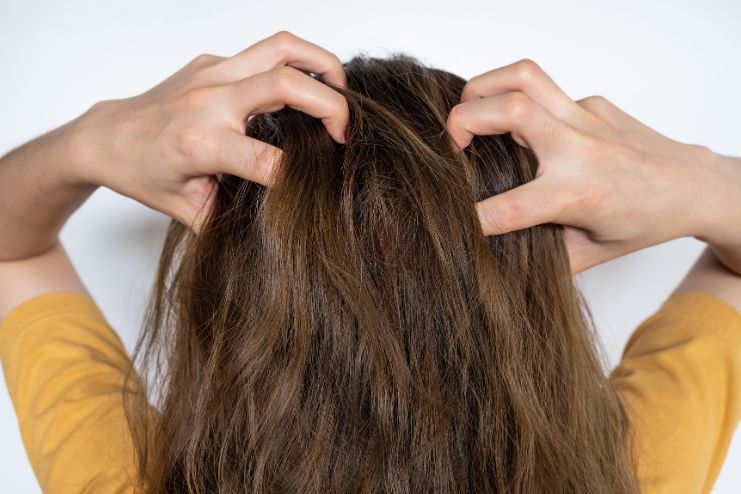
Hard water minerals tend to disrupt your scalp’s natural oil balance and microbiome. This may resemble symptoms such as dandruff, but in reality, it is mineral-induced inflammation.
Symptoms might include:
- Scalp tightness, itchiness, or redness
- White or yellow flakes that do not succumb to anti-dandruff shampoos
- Tenderness along the hairline or crown
6. Increased Hair Shedding or Slow Growth

Chronic exposure to hard water can soften hair follicles and compromise the health of the scalp, leading to:
- Excessive shedding while brushing or washing
- Thinning of hair or sparse volume
- A general feeling that your hair “just isn’t growing”
How to Fix Hard Water Hair Damage
The good news? Hard water damage is completely reversible. Here’s how to fix it:
1. Use a Clarifying Shampoo Every Week

Why it works: Clarifying shampoos have more powerful cleansing agents that are meant to dissolve mineral deposits and rebalance your hair.
What to look for:
- Chelating agents such as EDTA or citric acid
- Sulfate-free versions (if you have color-treated or sensitive hair)
- Lightweight consistency with low residue
Useful Tips:
- Use once a week (max) to prevent over-drying
- Follow up with a rich, moisturizing conditioner or hair mask
- Avoid using it daily, particularly if your hair is already dry
Read More: 6 Organic Shampoos for Strong and Vibrant Locks
2. Install a Shower Filter
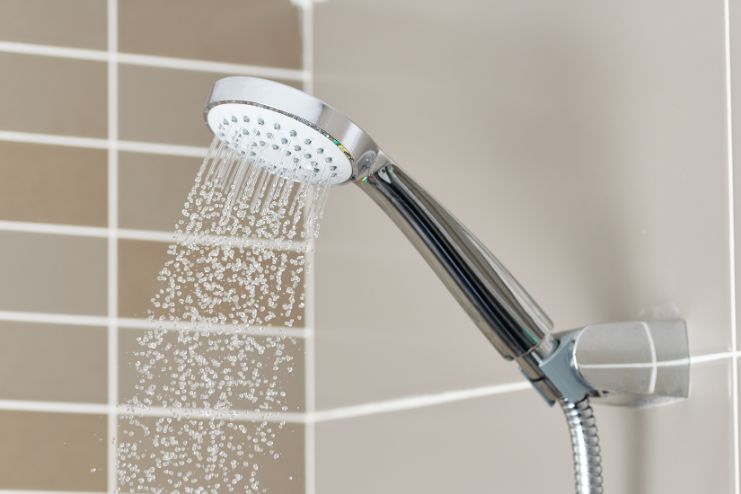
Why it works: A shower filter is an investment that pays off. These filters take out minerals, chlorine, and heavy metals from your water.
Benefits:
- Blocks new buildup formation
- Helps protect both your scalp and skin
- Some models also include moisturizing components such as vitamin C
Best for: Individuals having color-treated or curly hair and residing in an area with hard water supply.
Shower filters can be a great way to prevent damage to hair due to hard water. If you wish to invest in one, check this.
3. Try a Vinegar or Citric Acid Rinse
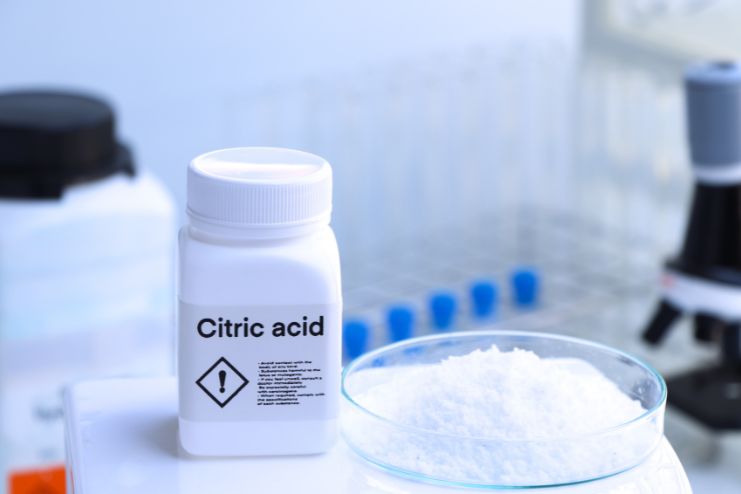
Why it helps: Acidic rinses help dissolve and neutralize mineral residue. They restore your hair’s natural pH, making strands softer and shinier.
How to Use:
- Mix 1 tbsp of apple cider vinegar (or lemon juice) with 1 cup of water
- Pour over freshly washed hair and let it sit for 3–5 minutes
- Rinse thoroughly and follow with conditioner
Frequency: Once a week or after using clarifying shampoo.
Bonus: A vinegar rinse also reduces scalp itching and boosts shine.
4. Switch to Hard Water-Friendly Hair Products
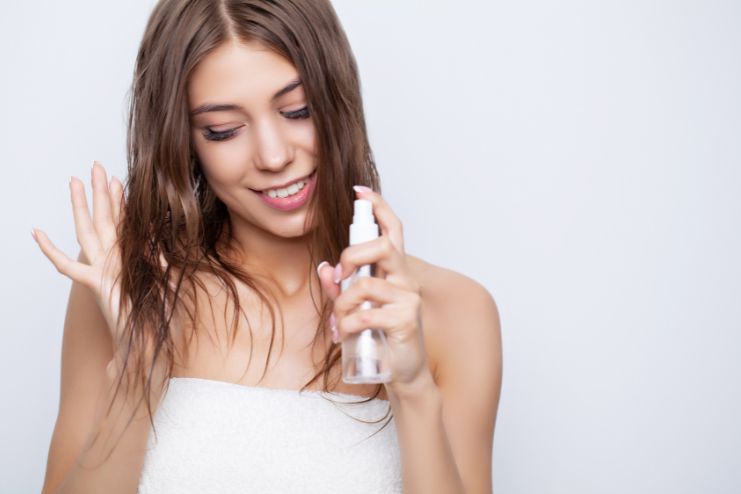
Why it works: Most drugstore shampoos include heavy silicones or waxes that adhere to mineral deposits, causing buildup.
What to look for:
- Chelating or clarifying shampoos with EDTA or citric acid
- Leave-in sprays or conditioners that are full of humectants such as glycerin or panthenol
- Deep conditioning masks containing oils such as argan, jojoba, or avocado
What to Avoid:
- Products with heavy silicones (such as dimethicone)
- Wax-based stylers
- Alcohol-based sprays that dry hair further
Herbal Essences Argan Oil Repair Shampoo & Conditioner Set is one of our top picks.
5. Seek Professional Help for Color-Treated Hair
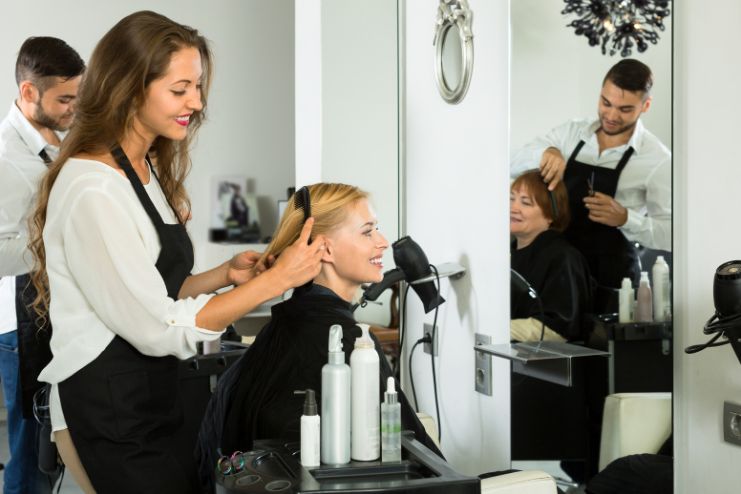
Color-treated hair is particularly susceptible to hard water. If you notice fading or brassy coloring:
- Talk to your stylist about professional clarifying treatments or glosses
- Use color-safe clarifying shampoos
- Keep up on regular trims to help prevent breakage
- Try salon-grade treatments such as a Malibu C hard water detox
Prevention Tips for Long-Term Hair Health

If you stay in a hard water region, prevention is as crucial as repair. Follow these hair-friendly routines to avoid damage:
Use a Satin Pillowcase
- Reduces friction during sleeping
- Prevents frizz and split ends
- Helps retain hair moisture while sleeping
Avoid Harsh Heating Tools
- Use straighteners, curling wands, and blow dryers sparingly
- Use a heat protectant spray if hair has to be styled.
- Choose air drying or use the “cool” setting on your dryer
Dry with a Microfiber Towel
- Absorbs water delicately without disrupting the hair cuticle
- Reduces breakage and frizz
- Lessens drying time naturally
Deep Condition Every Week
- Replenishes lost moisture due to mineral deposits
- Seek masks containing proteins, fatty acids, and ceramides
- Leave on for a minimum of 15–20 minutes for optimum results
Be Consistent with Water Filtration
- Change shower filters every 3–6 months
- Test water hardness with a home kit
- Invest in a whole-house filtration system if you experience ongoing buildup of minerals
Final Thoughts

Hard water can be colorless, but the way it treats your hair couldn’t be less invisible. From dryness and dullness to increased tangles and shedding more than normal, hard water hair damage eventually shows up—and mercifully, can be reversed.
With some knowledge and proper tools (such as a shower filter and vinegar rinse for hair, and usage of a clarifying shampoo), you can remove hard water deposits from hair. All these tactics will restore your hair’s shine, strength, and softness.
References
- https://www.culligan.com/blog/effects-of-hard-water-on-hair-and-skin
- https://theriversoft.com/blogs/shower-and-tap-filter/how-shower-filters-reverse-split-ends-due-to-hard-water
- https://www.k18hair.com/blogs/consumer/the-difference-between-types-of-hair-repair-1
- https://gisou.com/blogs/blog/hard-water-on-hair
- https://www.livingproof.com/hair-101/hard-water-hair.html
In this Article

